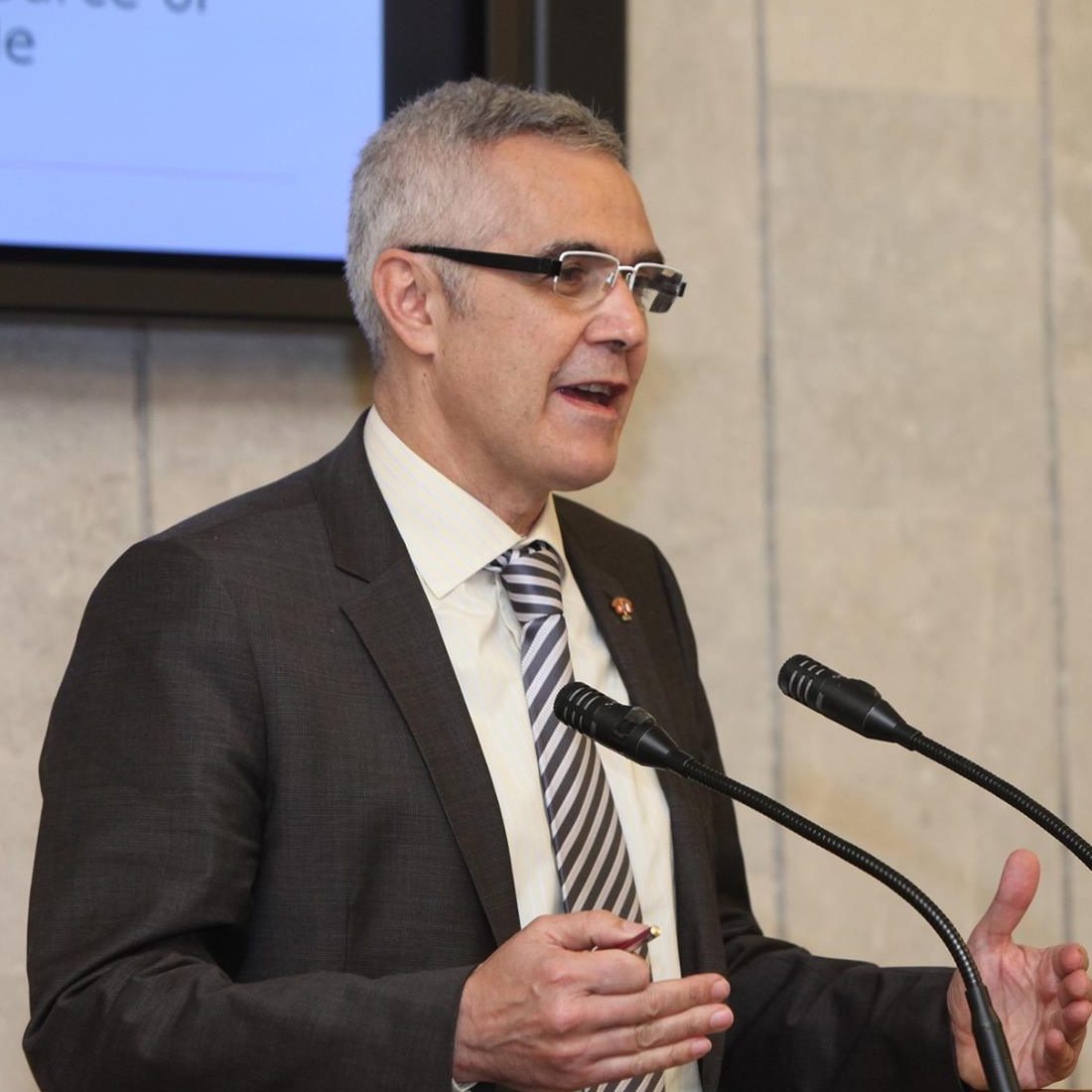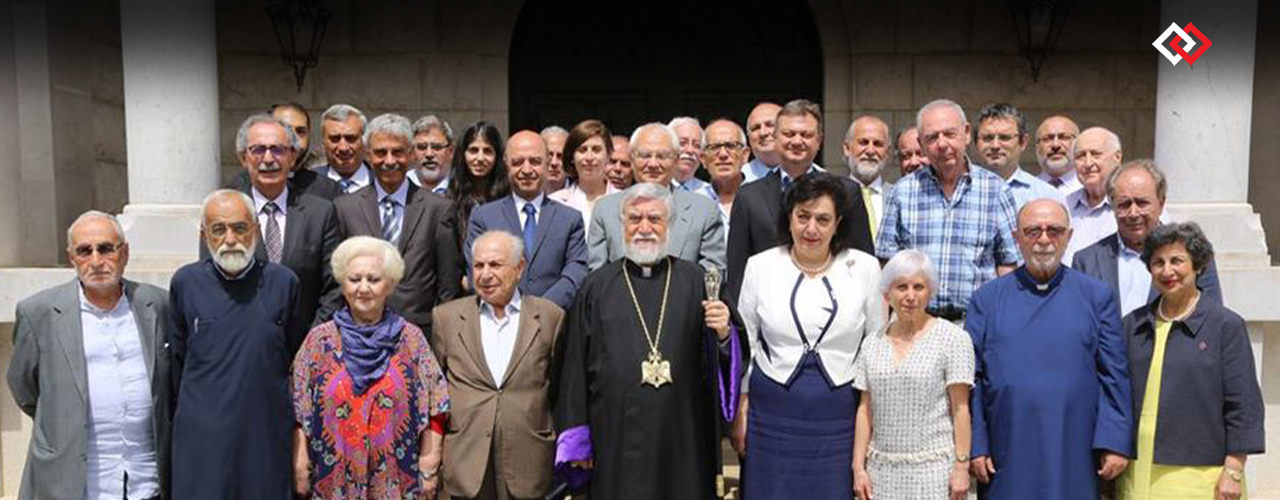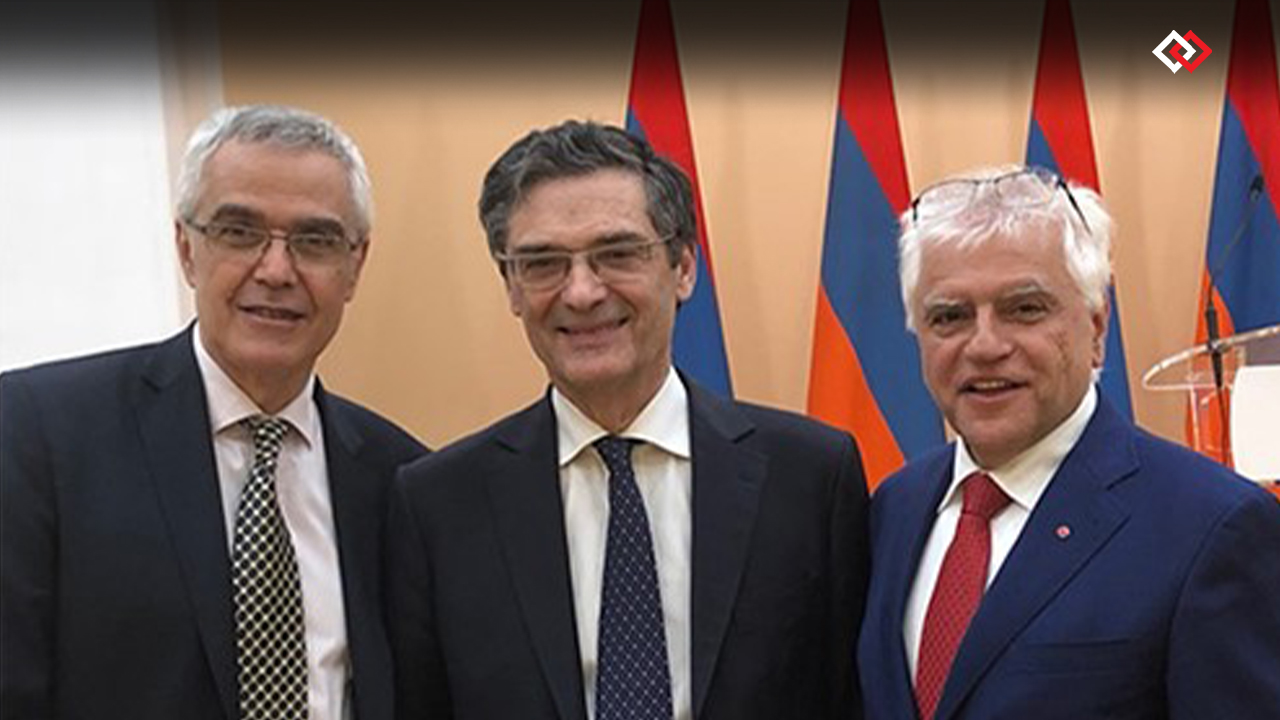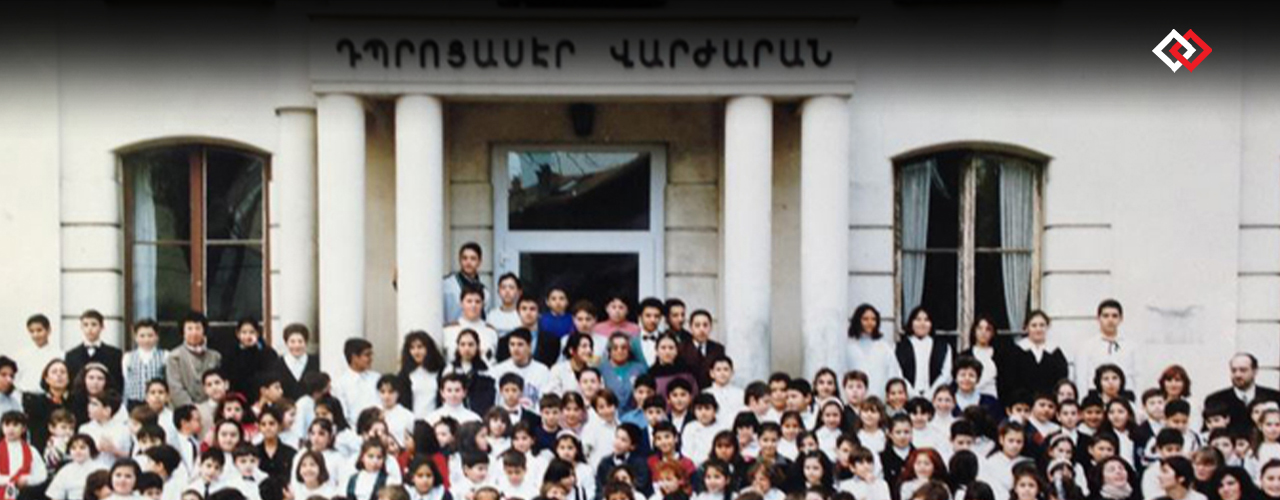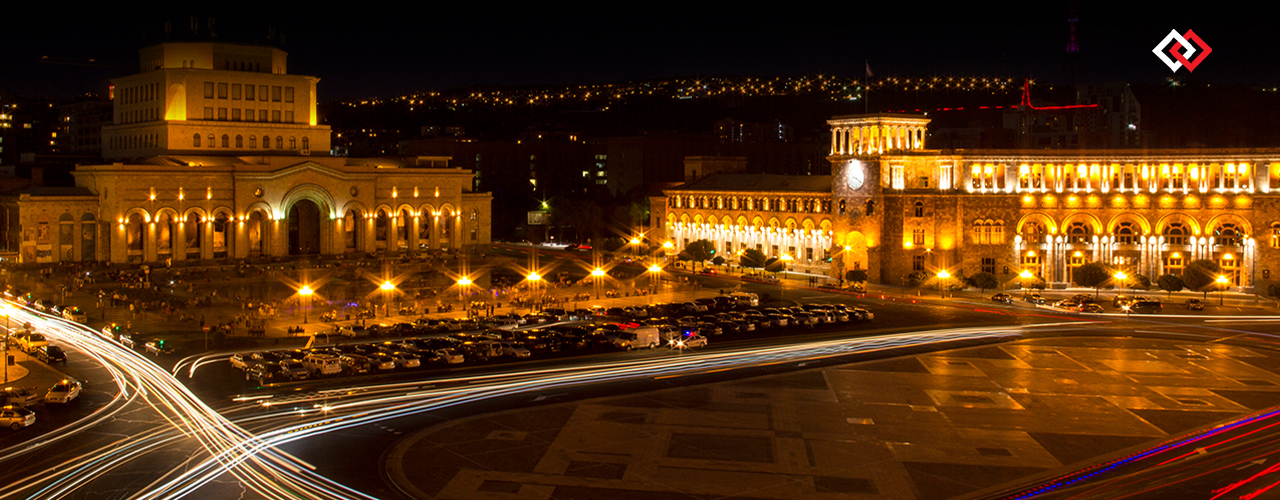An open letter
Dear Hagop,
It’s four o’clock. That is am.
I went to bed past 1.
I am buried in my tasks.
Yesterday I was busy all day with my phone calls and meetings. Just managed to be free at six in order to reply to my emails. At eight I grabbed something to eat and contacted Ani for our daily Skype meeting: We spoke. We spoke about customers, who had ordered what. Which country had a problem, France, Spain, USA, Germany? Are the jobs with the boys moving ahead? Yervant is working on Photoshop, he is an artist. Shiraz is answering the customers on Amazon, one by one, with most politeness, in their own languages. David is working on the website and the database, with strict discipline. Siranoush and Anna always help with pleasure whenever is needed. I am content with all of them. All are competent. Most importantly, they are good people.
It’s ten o’clock already. In Echmiadzin, Ani’s home town, it’s midnight. “Baron Hovel, my batteries are running down. My brain is slowing up; can we continue tomorrow morning?” Just at that moment I receive a message on my phone. Without checking my message I say “of course” to Ani, but we both know that “tomorrow morning” we will start the same mad run of another day and our meeting will be delayed again at eight, nine, and that, if poor Ani’s turn comes.
This way I in Paris, they in Armenia, one in Yerevan, the other in Echmiadzin, the other in Gyumri, and the others elsewhere, but we work and get on with the job. Nowadays, those who have not adaped themselves to the competitive market situation with the use of modern communication means, the digital world, the globalisation, have already lost the battle of careers and of life in general: be it the grocer in Alfortville or the diamond setter in Bourj Hammoud.
Ani is the light of my eyes. My cousin Harout, Mr. Nersessian of the AMAA put us in contact with each other, saying “I am not sure about her abilities at work, but definitely she is a good person”. Ani is a good person, humble, kind, noble, dedicated and virtuous. She’s also capable, has a good judgement and is reliable. Ani is fluent in Spanish, Russian and she is the one who edits my English letters… Who was yesterday defaming the Haysdantsis? Ok. Somebody’s neighbour’s nephew has invested wrongly, has dived into business without studying the market, without taking precautions. Enough! Be fair, have a little bit of intellectual integrity. Even if… It’s wrong to put down a whole people because of a few hooligans, be them high ranking officials or common citizen; despite the fact that the number of those hooligans was numerous at one time.
~~~~~~~~~~~~~~~~~~~~~~~~~~~~~~~~~~~~~~
It’s four o’clock. That is a.m.
I went to bed past 1 a.m.
The news from the last two days,
Last night’s conversation…
I cannot fall asleep. Catholicos Aram I has organised a conference on a subject that worries me very much: “The challenges and the dangers facing the identity of the Armenian in Diaspora”. The catholicos has invited more than thirty intellectuals to discuss the topic. Before finishing my discussion with Ani, I had received a phone message from one of the conference delegates, saying “Hello Hovel, let’s speak when convenient”. I called and we spoke. He said “the meeting is progressing very well, sometimes with hot discussions”.
I just recalled a discussion I had in Yerevan where a local said, “your Western Armenian vocabulary is not as rich as Eastern Armenian”. I was going to lose my temper and say, “if we remove from your Eastern language ‘petrushka’ and ‘gazar’, ‘ekran’ and ‘papka’, you will have serious communication problems. To start with, “they” (Eastern Armenians) should learn to say ‘Ayp, Pen, Kim (Այբ, Բեն, Գիմ)’, instead of A, Buh, Guh, and then (let’s put aside the spelling), let them use the Mesrobian alphabet instead of the barbarian Latin letters. They justify themselves saying they do not have that facility. For them, the Armenian «ե» is E, «խ» or «ղ» is X, the «ը» is @. Here is an example, «neroxutyn em x@ndrum vor anhang@stacnum em Dzez, bayc ayl elq chunem». Let’s see if you can sort that out.
Of course I did not say anything. The man had a point, sort of. In some professional courses and in technological terms they have new words in Eastern Armenian that the Western Armenian language has not coined yet or has not accepted what the motherland has processed. They say “shnig” instead of @. What a picture! As if the leash is wrapped around the dog’s neck like this @. Even if the word “shnig” is derived from Russian word «собачка» (a little dog), why shouldn’t we be able to use “Shnig” for the “at”? More importantly, we should re-develop the pronunciations for the Gim and Keh (Գիմի եւ Քէի), Da and To (Դայի եւ Թոյի) differences.
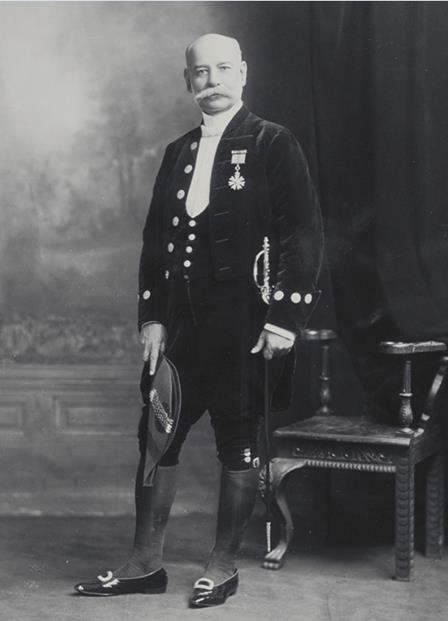
Vram, the well-respected diamond merchant, calls me from Yerevan. He was a historian and taught at the Armenian College and Philanthropic Academy of Kolkata. Somehow, suddenly, he has slipped to the level of trader. Yet from his “previous life” he has kept the views of an intellectual and that of the noble spirit.
During our last meeting in Hong Kong Jewellers’ Exhibition he left his post and went to Lord Paul Chater’s tomb to put flowers. In the evening, during dinner, he told us about the great difficulties he had to find the grave of the great Armenian philanthropist. He said the grave was neglected and run down, and that you could not read his name on the gravestone. The following morning he took a piece of cloth, soap, brush, paint and painting brush, and two helpers to clean and repaint Chater’s name on the gravestone. So are there such people around? There are and even more in Hayasdan.
Lord Paul Khachik Chater (Asdvadzadurian, born in 1846) is the principal architect-instigator of the “gem” of the British throne–Hong Kong. Orphaned at eight, he took his enterprize from zero to a giant empire. Lord Chater established great charities, thanks to which Kolkata’s St. Nazareth Armenian Church and the Philanthropic Academy still stand in his birthplace.
Apart from supporting Calcutta and Mother See of Holy Echmiadzin, Lord Chater made a great contribution to the French La Martinier schools that he attended. Children at the schools precede their daily morning prayer with an anthem which begin with the following line of reverence for the philanthropist who is forgotten in his homeland: “Thank you Paul Chater, our philanthropist…!”
And we? Are we the masters of the tombs left behind? Do we value the spiritual and contact our ancestors above the material?
Where was I? Oh, yes, Vram rang me and said, “I read your last article, enjoyed the beauty of your Western Armenian, and appreciated the delicate terminologies.” So are there such people around? There are even more like him in Hayasdan.
˜ ˜ ˜ ˜ ˜ ˜ ˜ ˜ ˜ ˜ ˜
Cannot fall sleep.
I start up my Computer.
I look at your group photo.

It’s been a while since our last meeting. I see you first from left: you have not changed. On the second row I notice our priceless Antranig, smiling. “Vartan on my right and Ishkhan on my left,” he says. Surrounded by such two good people, doesn’t he have all the reason to smile? I notice my dear friend Shahan, the editor of ‘Aztag’. I don’t see Sevag; most likely he is away. I have not met Mrs. Yeramian of ‘Ararad’ (daily newspaper). I don’t know whether she is present.
I was wondering: why have you not met in Antelias? Yes, Bikfaya is the summer residence of the catholicosate. The weather must be pleasant there now. But far from the new gravitational centres of the nation’s Diaspora (Moscow, Los Angeles, Paris, etc.), I was thinking whether the right hand (the “Ach”) and the throne of St. Krikor Lousavorich, which have moved from Dvin to Ani, to Van, to Sis, to Antelias since the 4th century, should move again and eventually settle nearer to the people!
No, it’s not important. Nowadays with modern communication, the digitalisation, and globalisation, the location is not important. The important thing is to have the pan-Diaspora understanding, and see the world from the perspectives of the different Diaspora communities, considering the different geographical, linguistic, conceptual and generational particularities. From your photo of the wise men I notice way at the back of the photo two good-looking young ladies—they’re among the three or four persons under fifty.
“Asdvadz oknagan, Your Eminence. I salute the initiative of the Holy See of Cilicia at this meeting. I salute and thank you for managing to gather so many meritorious people around you. May God prosper this seed that you have planted. Please spread your loving concern beyond the horizons of the East and reach us; let the flap of your frock stretch to the West’s stormy coasts. On our Western coasts we also have brilliant young men, like Grabar specialist Shahan Vidal, journalist Dikran Yegavian and the multi-talented Vahan Kerovpian–young people who can open new windows.
Let the distinguished people gathered around you see the ray of sunshine penetrating through the window–see and be encouraged. Let us see successful examples of the preservation of the Armenian identity and let’s spread the word. We do not have much time. Let’s get to work. We are melting like snow under the sun.
Delegates of the Bikfaya meeting, I am concerned in our nation’s future. We need to keep pace with advancements in science and communication, understand artificial inteligence, popularize the use of modern media, develop Armenian subjects in Wikipedia and YouTube, create massive open online courses and spread them wide. Otherwise, how can we reach out to the 98 percent of the West’s teenagers, for whom the Armenian schools are not accessible?
My concerns are endless. There are the new and small communities of Nantes, Rotterdam, Barcelona, and Krasnodar. There are 50,000 Armenians in Krasnodar, a city where there is no Armenian church, nor an Armenian school and where Armenians are baptising their newborn in the “sister” Russian Orthodox Church.
“Asdvadz oknagan, Your Eminence Catholicos of All Armenians,
I beg you to tell your flock to schedule the baptisms of their children during the family’s summer holiday in the motherland and have it in the Apostolic Armenian Church.
I beg you to explain to your flock which of the Russian Orthodox “sister” church or the Armenian twin daughter Churches is dear (“harazad”) to us.
I beg that you inform your flock that the Armenian Catholic and Evangelical clergymen are of our flesh, unlike the clergymen in the sister Russian Church, who with his beard and frock might look familiar, but unwillingly takes away with sharp teeth our lambs, using a foreign baptismal seal.
Holy Father, let your wise advice, your fatherly blessings and Christian love spread onto all Armenians and beyond. As the Apostle wrote, “first to my people, then to the foreigner”.
“My Dear, nowadays everything modern is valued”. *
The camera and the computer,
The kitchen ware and clothes,
The way of thinking and behaviour,
Values and ethics.
We fold the old ones and store them,
From the wardrobe to the loft, from the loft to the bin,
We get rid of the old goods, throw them away, burn them,
We throw them, and burn them, the green with the dry ones.
We throw away old furniture; we keep Ikea goods,
We throw away paper and pen, but keep the keyboard,
We throw away the kitchen but keep the fast food,
We throw away relationships, but keep text messages,
We throw away the family sacred values, but keep the debauchery,
We throw away the classical, the beautiful, but keep the modern.
My Dear, nowadays everything modern is valued.
Delegates of the Bikfaya meeting, I would like to propose a subject on your agenda. As a nation, are we going to have a twin-branched language with a single orthography? Who will decide? Wouldn’t it be correct to keep the classical, the roots of the Mesrobian orthography?
The Jews, at the beginning of the last century, decided with courageous determination to replace modern Yiddish with classical Hebrew. They resurrected the dead language.
The standardization of the orthography has a strategic importance. Beyond the principle of preserving the beautiful and the radical, keeping alive the Western Armenian has a strategic importance.
Who will decide? The politicians or visionary intellectuals like you?
I beg you, come to a conclusion before the next “show”.
Spiritual Fathers and Partriarchs, if you can’t make that decision, who can? Who will? If, God forbid, suddenly one of the branches of our bifurcate tree dries out, the second branch will be threatened, and then the tree itself.
“The meeting is progressing very well, sometimes with hot discussions…”
Dear Brothers, delegates of the Bikfaya meeting, I beg you and the respectable absentees to get together as a single body.
“Just as each of us has one body with many members, and not all members have the same function, but all its many members form one body.” *
The Hayasdantsi and the Disporan,
And the Eastern Armenian, and the Western Armenian,
And those who follow Echmiadzin, and those who follow Antelias,
And Tashnag, Ramgavar, and Hnchag party members,
And Apostolic Church and the Roman Catholics and the Evangelicals,
And those from Bolis, Lebanon, and Iran,
And still democrats, liberals, and pro-Atlanticists, and pro-Putinists.
“So brothers, for just as each of us has one body with many members, but all its many members form one body. The eye cannot say to the hand, “I don’t need you.” The head can’t say to the feet, “I don’t need you.” …Therefore, I urge you, brothers, in view of God’s mercy, do not think of yourself more highly than you ought, but rather think of yourself with sober judgment. Never lack in zeal, but serve in spiritual fervor, if it is possible, live at peace with everyone”. *
I wish that the Spark of Hope that the Catholicos gave spreads, enlightening the four corners of the earth.
To the delegates of Bikfaya, I wish “faith as much as a mustard seed” to move mountains **.
All these being as one body, armed with great love which is the highest of spiritual values.
* 1 Corinthians 12, Romans 12
** Luke 17:6

